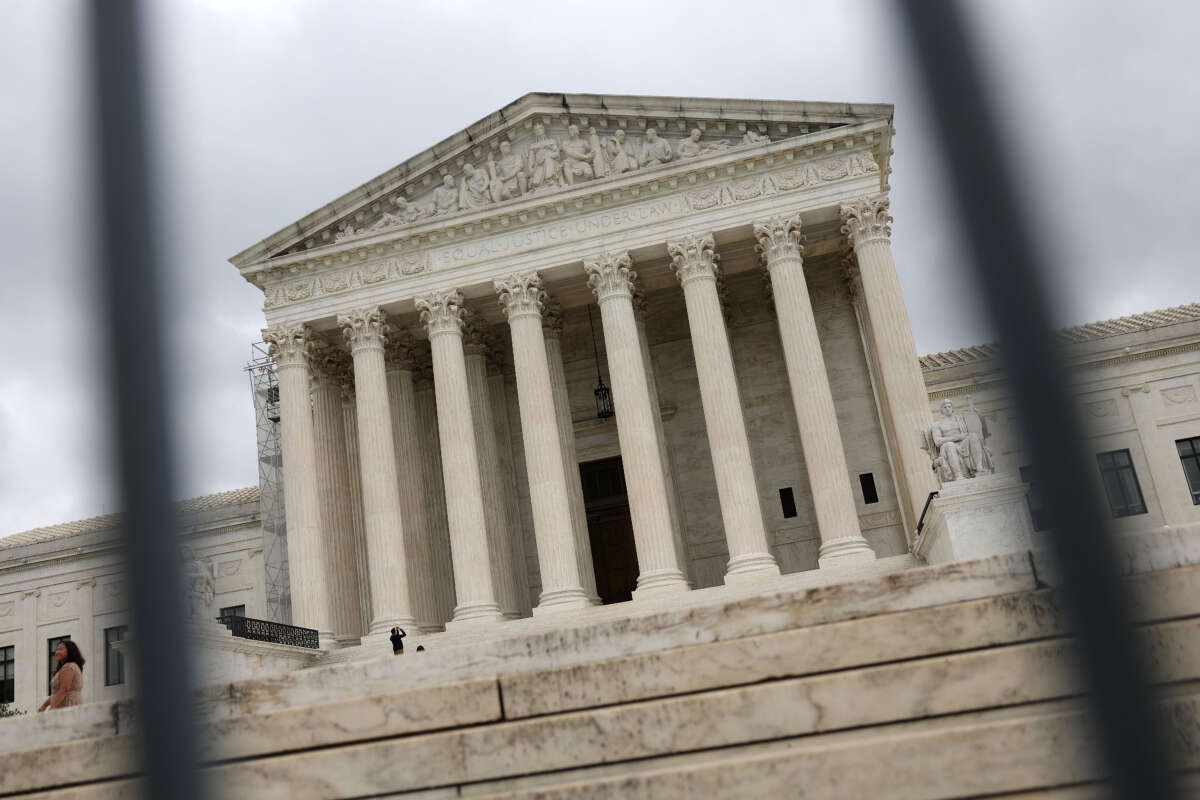A bipartisan group of legal experts has published a 32-page report recommending 18-year tenure limits for new and sitting U.S. Supreme Court justices.
The 11-member panel, representing experts “from all across the country” and of varying political beliefs, was convened by the American Academy of Arts and Sciences. Calling itself the U.S. Supreme Court Working Group, the panel includes, among many other notables, Charles Fried, a former U.S. Solicitor in the Reagan administration, and Diane Wood, a former member of the Seventh U.S. Circuit Court of Appeals who was appointed by former President Bill Clinton, and who was once considered for a spot on the Supreme Court herself.
Eliminating the current standard of lifetime appointments and enacting 18-year term limits instead would be a “vital reform” to lessen partisanship on the court and in the process of choosing justices, in turn improving the institution’s dwindling approval rating, the report states.
The proposal “would have a healthy effect in the direction of reassuring people that the Supreme Court is a Court, not just one more political institution,” Wood said.
Akhil Reed Amar, a constitutional law professor at Yale Law School, also lauded the group’s findings in a recent interview, stating that the process for appointing justices is “an arms race for people to maximize the number of years of their influence.”
Members of the nation’s highest court are complicit in that arm’s race, Amar added. “Justices time their resignations in political ways, and that’s not great,” he said.
Justices “time their retirements,” the report says, “to maximize the chance that an ideologically aligned successor will be confirmed.”
“Justices are more likely to retire while the president is of the same party that nominated them than when the president is of the opposite party,” the report adds.
The report proposes that an appointment to the Court be made every two years, to ensure that a president is able to pick a new justice twice for every term they serve in. The proposal would require a change to Senate rules to ensure that the appointment schedule isn’t disrupted by partisan politics. After 18 years of service, justices would take on “senior status,” a form of semi-retirement taken by other federal judges. Those with senior status could still hear appeals at the lower court levels, and could sit in on Supreme Court cases when other justices choose to abstain or rare vacancies occur.
The report follows, but is independent of, the introduction of legislation by a group of Democratic senators this week that essentially calls for the same reforms. That bill would also establish the appointment of a new justice every two years, with only the nine most recently appointed justices hearing certain cases.
The proposal by Senate Democrats would split the Court into two groups. Those who go beyond the 18-year term limit would still be able to hear what are called “original jurisdiction” cases, constitutionally mandated cases that go directly to the High Court that involve disputes between states or disagreements between foreign officials and the U.S. government.
All other appellate-based cases — disputes that come to the Court from lower courts in the federal court system or arise from federal constitutional questions after a state court has ruled on a matter in its own jurisdiction — would only be heard by the nine justices with the most recent tenure starting dates.
Polling demonstrates that most voters would support the reforms that Senate Democrats and the working group’s report are calling for. According to a Politico/Morning Consult poll from last month, 69 percent of Americans support the enactment of tenure limits for Supreme Court justices. Only 18 percent of respondents said they disagreed with such a proposal.
Media that fights fascism
Truthout is funded almost entirely by readers — that’s why we can speak truth to power and cut against the mainstream narrative. But independent journalists at Truthout face mounting political repression under Trump.
We rely on your support to survive McCarthyist censorship. Please make a tax-deductible one-time or monthly donation.
